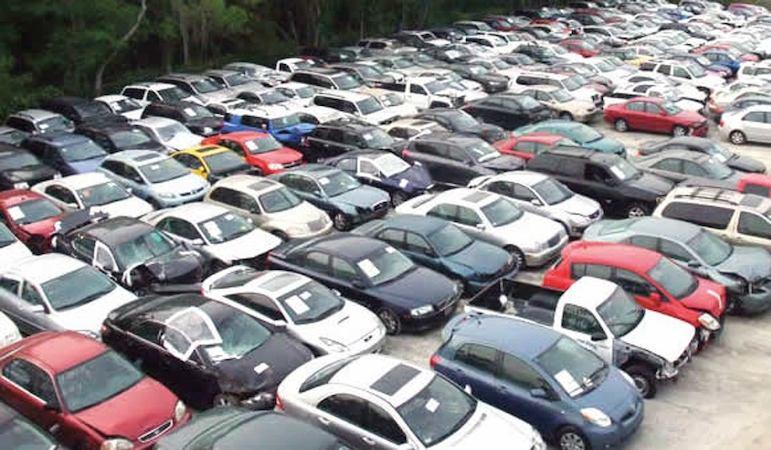
BusinessDay
Oladehinde Oladipo
September 5, 2025
The chances that a new car in Nigeria is Chinese are climbing quickly. On a typical Lagos street today, every third shiny SUV or Sedan may well carry a badge that, until recently, was little known outside Beijing or Guangzhou: Changan, Haval, GAC.
These brands have staged one of Africa’s most unexpected automotive shake-ups in recent memory, overturning decades of Japanese and European dominance in a market once ruled by used imports.
BusinessDay’s findings show that some individual car buyers and companies are now turning to Chinese brands, attracted by prices that undercut German, Japanese and American rivals.
The presence of brand-new GAC, Geely, Changan, Chery, and Jetour on Nigerian roads is steadily increasing, signifying the growing demand for Chinese cars, especially for official use.
Ojurongbe Damilola, head of technical services at Cars45, told BusinessDay that there has been a shift in demand for Chinese brands among companies that primarily opt for brand-new cars, revealing that some local banks now procure GAC cars for their staff.
He said while the demand for new vehicles, particularly Chinese brands, remains notable among certain segments of the market, there is a shift in demand for Nigerian-used cars. He said this highlights the impact of the foreign exchange (FX) crisis on consumer preferences in the Nigerian automotive market.
“Nigeria’s auto market and consumption pattern are shifting from the top to the lower end of the market due to the FX crisis that has resulted in rising prices in vehicles,” said an executive of a luxury auto brand in Nigeria who declined to be identified.
According to him, dealers of luxury auto brands now wait for customers to place orders before bringing in luxury vehicles into Nigeria because no dealer would want to burn their fingers on a car that costs hundreds of millions.
An analysis of prices between popular Japanese brands such as Toyota and Chinese brands shows that brand new Toyota Camry 2.5l and 3.5l V6 sell for N48 million and N53 million respectively, while new compact SUVs such as Chery Tiggo 4 and Chery Tiggo 7 Pro Max go for N15.4 million to N29.4 million, depending on the model.
Adebola, @Adebxla, an X user, wrote that the Kwara State government has been buying Chinese brands for its cabinet members.
“The KWSG, for instance, has been buying Chinese brands for its cabinet members, such as Mikano and Geely,” he tweeted.
Another X user, @biodun2212, tweeted: “I’ll gladly drive some of those Chinese brands Geely, Changing, Jetour etc.”
Geopolitics, price, pragmatism
At the heart of this move lies a combination of geopolitics, price, and pragmatism. As Donald Trump’s second term redraws global trade with tariffs on Chinese goods bound for the US, Africa has emerged as Beijing’s substitute growth frontier. Nowhere has that been more evident than Nigeria, Africa’s most populous nation and its largest economy, where the balance of automotive power is tilting toward Chinese brands.
Read also: Nigerians shift gear to Chinese cars on volatile naira
From trucks to passenger cars
The shift has been spearheaded by TIM Motors, a Chinese-backed distributor long known in Nigeria for selling heavy-duty trucks such as FAW, Sinotruk, and Shacman.
In April this year, TIM launched a passenger vehicle line designed specifically for the Nigerian consumer. Its ambition is audacious: To convert a country where more than 90 percent of car buyers rely on second-hand imports, known locally as ‘Tokunbo’ into a nation of new-car buyers.
“We want to replace 10 percent to 20 percent of Nigerian used cars with Chinese new cars,” Leon Zhan, chief executive of TIM Motors, told guests at the company’s Lagos showroom launch.
Zhan, also a partner at the Shanghai-based private equity firm Zeal Capital, projects that Nigeria’s new-car ownership could expand from fewer than 15,000 units annually to as many as 50,000 within three years.
The company’s strategy rests on aggressive pricing and local investment. The flagship MGHS SUV retails at $38,000, significantly undercutting Toyota’s popular RAV4, which sells for about $45,700. The larger MG RX9 is offered at $48,000, almost $20,000 cheaper than Toyota’s Fortuner.
Both models are available in petrol, hybrid, and fully electric variants. Every purchase comes with a five-year warranty and the promise of financing through China’s state-linked C&D financial services group.
This price calculus matters in Nigeria, where incomes are rising but disposable spending remains squeezed by high inflation and a volatile naira.
“The Tokunbo market has always been about affordability,” said an executive at a Lagos-based auto financing firm. “Now Chinese cars are saying: why buy a 10-year-old Toyota from the US when you can own a brand new car for not much more?”
A geopolitical tailwind
China’s foray into Nigeria’s car market is not simply a corporate bet, it reflects the wider reorientation of Chinese exports amid Washington’s tariffs.
In the first half (H1) of 2025, Chinese shipments to Africa surged 25 percent year on year to $122bn, surpassing the continent’s total imports from China in all of 2020, according to data from Bloomberg.
Passenger car exports more than doubled, which is part of a broader boom that has made Africa the fastest-growing destination for Chinese goods.
Nigeria, South Africa, and Egypt are the largest buyers, with construction machinery and steel leading the surge. But cars have become the symbol of a deeper shift.
“Chinese exporters have done a genuinely impressive job of diversifying into emerging markets in recent years, including in Africa,” Christopher Beddor, deputy China research director at Gavekal Dragonomics, told Bloomberg. “The weaker yuan this year has probably also made Chinese exports more competitive in African countries.”
Beijing has reinforced this push with policy gestures. President Xi Jinping announced in June that China would scrap tariffs on imports from all African countries with which it maintains diplomatic ties. Agricultural goods from 19 African nations are now allowed into the Chinese market.
Meanwhile, Chinese financing is underwriting everything from highways to showrooms, ensuring that brands like GAC and Changan arrive not just with cars, but with service centres, credit lines, and after-sales guarantees.
Cracking the ‘Tokunbo’ stronghold
The challenge is immense. Nigeria’s used-car economy is vast, with an estimated 500 cars to 600 vehicles arriving monthly from North America. Imports are often salvaged from accident lots, patched up in ports, and sold to Nigerians eager for the perceived reliability of Japanese and American makes.
Yet cracks are emerging in this model. The cost of shipping and clearing second-hand cars through Lagos ports has risen sharply in recent years. Import duties and foreign exchange shortages have pushed Tokunbo prices up by 30 percent since 2022. For buyers, the once-straightforward calculus — buy used, save money, no longer looks as compelling.
Chinese brands are exploiting this moment. Their warranties, financing packages, and the promise of local assembly all appeal to middle-class Nigerians wary of spending heavily on vehicles that require constant repairs.
TIM Motors, for example, plans to open technical support centres in Ikeja and Victoria Island this year, train 200 mechanics, and establish an assembly plant in Abeokuta by 2026.
“People underestimate how much Nigerians value reliability,” said Zhan. “We are not just selling cars; we are building the ecosystem that supports them.”
Join BusinessDay whatsapp Channel, to stay up to date
Dipo Oladehinde is a skilled energy analyst with experience across Nigeria’s energy sector alongside relevant know-how about Nigeria’s macro economy. He provides a blend of market intelligence, financial analysis, industry insight, micro and macro-level analysis of a wide range of local and international issues as well as informed technical rudiments for policy-making and private directions.
Join BusinessDay whatsapp Channel, to stay up to date














